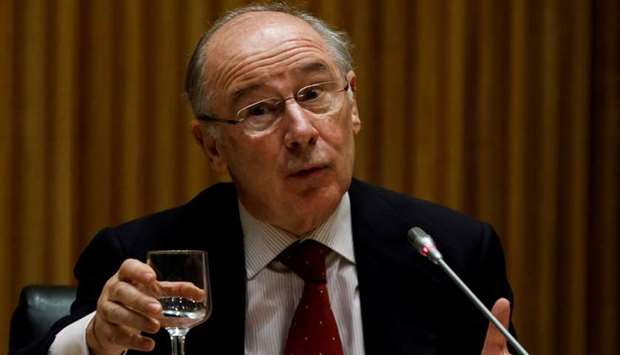Former International Monetary Fund chief Rodrigo Rato will have to serve a four-and-a-half year jail sentence for misusing company credit cards when he worked at state-owned lender Bankia, Spain's Supreme Court confirmed on Wednesday.
Rato, who was economy minister in Spain and a prominent figure in the ruling People's Party (PP) before moving to the IMF, chaired Bankia for two years until just before its state bailout in 2012.
In 2017, the court considered Rato responsible for overseeing the misuse of credit cards and said he could have reversed the practice that involved dozens of other executives and board members of Bankia.
Rato had appealed the ruling and denied any wrongdoing, arguing the expenses he accrued on the Bankia credit cards were legal.
On Wednesday the Supreme Court said in its 456-page ruling that it considered the sentence to be proportionate due to Rato's preeminent position at Bankia from whose assets he had "profited unfairly and allowed others to profit".
Rato's lawyer did not respond to requests for comment.
The case is one of several high-level corruption investigations now coming to fruition and seen as a test of whether Spain's rich and powerful are accountable before the law.
The so-called "black cards" case sparked widespread anger when the scandal first broke in 2014, at a time when Spain was recovering from years of recession, mass layoffs and a banking crisis partly triggered by Bankia's massive bailout.
The cards were used to buy jewels, holidays and expensive clothes, according to documents filed with Spain's High Court, but also to fund more mundane purchases such as trips to the cinema.
The Supreme Court confirmed the jail sentences of between four months and more than four years for 64 former Bankia executives, including Rato.
In total, prosecutors investigated some 12 million euros in spending on the cards between 2003 and 2012.
Before chairing the Washington-based IMF between 2004 and 2007, Rato was deputy prime minister in Spain's conservative government in 1996.

